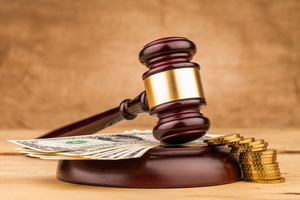Legislative Status of Crypto Payments in the Russian and the CIS Environment
The volume of the Bitcoin market is estimated at billions of dollars. Government bodies are forced to reckon with digital monetary units. Controlling authorities are actively trying to manage them.

The 2WinPower team has collected exhaustive information on the regulation of the electronic currency market. Learn how to start a Bitcoin casino in conformity with legal norms.
Juridical Nuances of the International Digital Currency Market
Until recently, digital money was in legal collapse. Even the most developed countries were not able to give a clear definition of the virtual coins’ essence.
In different states, they have been recognised as:
items of exchange; instruments of payments; items of goods; investing assets.
No country in the world has declared Bitcoin as an analogue or a full replacement for foreign currency.
This phenomenon is associated with the dual function of digital money:
Technological aspect. Blockchain technologies make Bitcoin a medium of information. The private blocks encrypt user data and other information (for example, the first coin encoded a list of bank accounts in Cyprus). Financial instrument. When various analogues of Bitcoin appeared, a full-fledged financial infrastructure began to be created: commercial platforms, exchanges for trading digital monetary units, electronic assets, etc. In recent years, the ecosystem has reached a great scale. It is considered a separate and self-sufficient financial market today.
Electronic Money in Different Countries
Despite the massive popularisation of electronic financial units, a unified market control program still does not exist.
The legal status of crypto industry in the world:
Japan
Digital money has the status of a full-fledged means of payment.
The state legalised work in the electronic financial sector to the full. Moreover, it also introduced unified standards for auditing the circulation of cryptocurrencies and evaluating blockchain start-ups.
Blockchain projects are subject to government tax of up to 55% of total revenues.
United States
The legalisation of the crypto sector goes simultaneously in three directions:
- an alternative to the current state currency;
- a personal property;
- an exchange asset.
Each American state has individual legal regulations. Besides, special government bodies are involved in the regulation of crypto securities and the control of tax deductions.
Germany
It is possible to start a Bitcoin casino in this country legally because digital monetary units are officially recognised as financial instruments. At the same time, the government identifies the currency as private assets and allows users to make payments without involving banks.
Switzerland
An operator can buy a Bitcoin casino as a virtual asset here. Moreover, such a project comes within the category of a net property asset with a 0.3–0.5% flat tax.
Only mining farms are considered a commercial business.
Estonia
Crypto money has the status of an alternative payment instrument here.
The country was one of the first to adopt the relevant legislation. More than 500 crypto start-ups had been launched on its territory by 2019.
Local legal nuances:
- a turnkey Bitcoin casino with an Estonian licence can interact with clients from all over the world;
- the work of operators is not subject to VAT;
- there is no income tax;
- fiscal charges are borne by the clients of an establishment and are regulated by the norms of their countries;
- the tax rate for residents is 7%.
Legislative Control of Cryptocurrencies in Russia

The legal status of digital money and the relationship of authorities to electronic financial transactions have been actively discussed by the local government since 2015. Only in July 2020, the law on digital financial assets and the electronic currency was adopted.
The bill came into force in January 2021. It officially equated virtual monetary units to taxable property assets. It is not possible to pay for goods and services because digital money is not recognised by the local authorities as legal means of exchange.
Key extracts and provisions of Law No. 259-FZ:
The concept of digital currency. The law regulates Bitcoin, Ethereum, and other blockchain-based units. At the same time, any crypto coins are not financial assets. To purchase them, residents of the country do not need to comply with additional conditions. The bill spells out a clear separation between digital financial assets and e-currency. Tax liabilities. The obligation to report to the tax authorities for the ownership of crypto property falls on both individuals and entrepreneurs (including representatives of foreign organisations operating in the country). The tax is levied on assets with an annual volume exceeding 600 thousand rubles. Penalties. The law provides for fines for the untimely submission of declarations, the provision of inaccurate information and hiding data on crypto transactions. Penalty fees can range from 10 to 40% of the largest sum of deposit or withdrawal. Administrative responsibility. The bill establishes civil liability for the illegal release of digital currency and the unlawful acceptance of electronic coins as payment for goods and services. The maximum fine is up to 2 million rubles. Restrictions on ownership. Officials, deputies, and the representatives of law enforcement agencies and their families do not have the right to own foreign digital assets.
Electronic Money in the CIS States
Given the lack of a unified legal framework for regulating the crypto field, the start of a crypto casino needs to be coordinated with local authorities.
The situation with digital monetary units in the CIS is as follows:
Belarus
This jurisdiction is considered one of the most promising sectors for work in the iGaming industry. All types of gambling activities are allowed on this territory, including the development of Bitcoin casino software.
The state was one of the first in the world to legalise all manifestations of the digital economy:
mining; crypto exchanges; smart contracts; blockchain systems, including Bitcoin casino solutions; exchange/purchase/storage of digital monetary units, etc.
The legislative innovation came into force in 2017. Moreover, any transactions with digital assets are not classified as a type of entrepreneurial activity until January 2023 and are not subject to income taxes and VAT.
Kazakhstan
The electronic coin market in the country is not regulated. However, the situation promises to change soon.
In March 2021, a special working group was created based on the Ministry of Digital Development. It was entrusted with the development of the crypto sector regulation and the implementation of blockchain technologies in the public administration system.
Armenia
The country's financial infrastructure is controlled by the Central Bank.
The institution refuses to recognise virtual money as a legitimate financial instrument. Nevertheless, it plans to take some actions concerning digital market control:
to develop an up-to-date legal framework and create an authorised control body; to create an expert group for counselling of residents on the exploitation of blockchain technologies; to introduce some measures for encouraging crypto projects (the country presents many privileges for IT companies).
The Main Things about Crypto Markets in Russia and the CIS

The acquisition of a Bitcoin casino script is the most promising trend in recent years. The global crypto market is constantly increasing its volumes. It is considered a safe alternative to the traditional financial system.
The dual function of digital monetary units has led to a global legal collapse. Since Bitcoin combines the capabilities of an information carrier and options of the financial system, there is no single system of regulating the crypto casino script market in the world. Digital money in different jurisdictions is equated to financial assets, property, goods, or units of account. The crypto area is regulated by most countries in the world. For example, electronic coins are recognised as a full-fledged means of payment in Japan. In Switzerland, cryptocurrency casino scripts and other blockchain projects are equated to property assets. Russia recognised digital money as property. Both individuals and legal entities can invest in crypto start-ups legally. However, digital monetary units cannot be used as a payment instrument for buying goods and services. Financial transactions exceeding 600 thousand rubles are taxed.
You can find out more about the nuances of the crypto field regulation from 2WinPower specialists. Our team proposes consulting services, assistance in the development of a personal business strategy, comprehensive maintenance, and an extensive assortment of Bitcoin casinos for sale.
The list of our available offers includes:
turnkey iGaming platforms; Bitcoin gambling scripts; mobile services and games; bookmaker software; new-generation payment instruments, etc.
- e-mail: info@2wpower.com
- Telegram: @Win2Power
Please be careful! We have noticed that scammers are using our contact details to deceive customers.
For security reasons, please use only the contact information provided on the page https://2wpower.com/en/feedback
Our company is not responsible for the actions of fraudsters.












 DEMO
DEMO 



